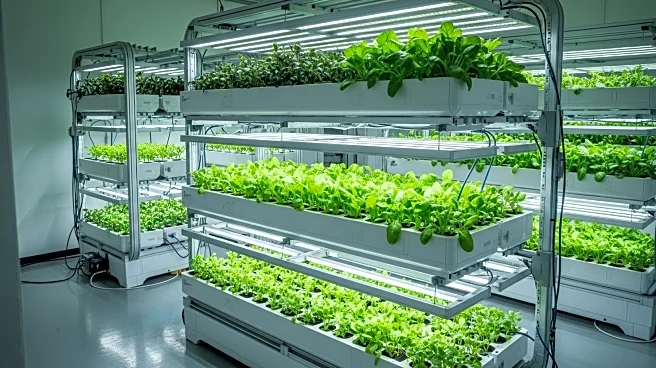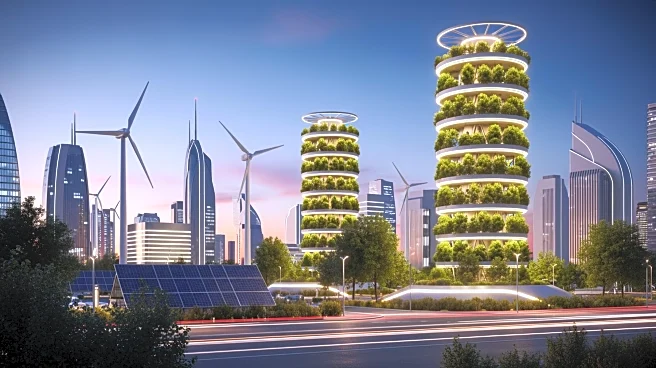What is the story about?
What's Happening?
The global vertical farming market is expected to experience significant growth, with a projected compound annual growth rate (CAGR) of 24.6% from 2024 to 2031. This growth is driven by the increasing need for sustainable food production systems due to shrinking arable land and resource depletion. Vertical farming utilizes stacked growth systems, hydroponics, and aeroponics to cultivate food in controlled environments, ensuring consistent yields with minimal resource consumption. The integration of AI and Generative AI (GenAI) is enhancing operational efficiency and automating processes, making vertical farming more profitable and ecologically sound. These technologies assist in precision agriculture, environmental control, and predictive crop optimization.
Why It's Important?
The expansion of vertical farming is crucial in addressing global food production challenges, including rising demand, land and water scarcity, and climate volatility. Vertical farming offers a sustainable solution by consuming significantly less water and eliminating the use of pesticides and chemical fertilizers. This approach aligns with global sustainability goals, as agriculture currently accounts for a substantial portion of freshwater use and greenhouse gas emissions. The integration of AI and GenAI in vertical farming is revolutionizing the industry, providing a pathway for scalable, climate-resilient agriculture, particularly in urban spaces.
What's Next?
The vertical farming market is witnessing strong venture capital interest and rapid startup expansion, with companies focusing on sustainable food production solutions. As urban centers strive for food self-sufficiency, AI-powered vertical farming is emerging as a cornerstone of next-generation food production strategies. The U.S. market is expected to grow significantly, driven by the integration of renewable energy sources, which reduce operational costs and carbon footprints. This synergy between renewable energy and indoor farming is paving the way for scalable, climate-resilient agriculture in urban spaces.
Beyond the Headlines
Vertical farming presents a transformative approach to agriculture, offering a sustainable solution to the environmental impact of traditional farming methods. By utilizing renewable energy, aquaponic systems, and circular nutrient cycles, vertical farms reduce carbon emissions and enhance water conservation. These advancements support global sustainability goals, providing a promising approach to securing food production while minimizing ecological impact.















